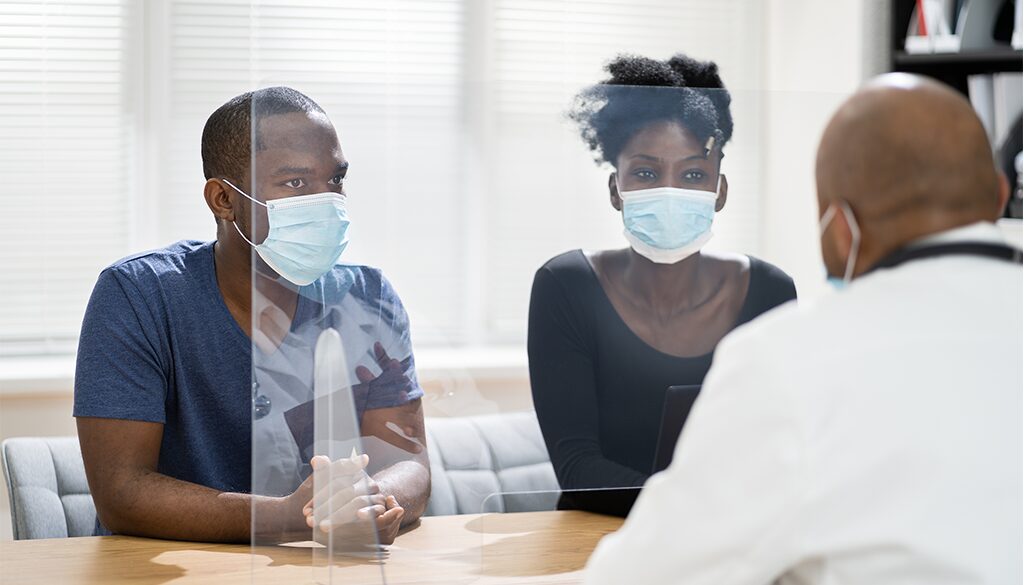My Partner Has an STD – What Should I Do Next?
It’s not the news you wanted to hear.
After being together for six months, your partner tells you that they have genital herpes, one of the most common sexually transmitted infections (STIs) or sexually transmitted diseases (STDs). There are a lot of thoughts flooding your mind. You may experience anger, fear and frustration.
Therefore, you’re also probably wondering what you should do next.
If you have an STD, you’re not alone: Roughly 1 in 5 Americans has had an STD at some point in their lives. In addition, there are more than 20 common STDs, and treatment will need to be carefully tailored to the type you have.
We’ll look at the most common sexually transmitted infections and what you should do if your partner tests positive for one of them.
What Should You Do If You Have an STD?
Tell Your Partner
If you do have an STD, tell your partner. If you aren’t in a monogamous relationship, notify your other sexual partners who have been exposed so that they can be tested as well. We realize this is a difficult conversation to have, but it’s very important for your other partners to be able to protect themselves as well as any others they have had contact with. If you need tips on how to have this conversation, please speak to your doctor. We’ll be glad to help.
In addition, if you have certain sexually transmitted diseases—such as gonorrhea and chlamydia—get tested again in three months because you can get reinfected. Your doctor will have more information on whether or not you need to get retested.
Follow Your Treatment Plan
Your doctor will outline a treatment plan tailored to the certain type of STD. Often, this will involve taking medications like antibiotics. Therefore, remember that it is important to complete your entire round of antibiotics, even if you have no obvious symptoms.
If the STD is caused by a virus, antibiotics will not be effective. However, your doctor can prescribe medication that will help manage your symptoms. Again, it is important that you carefully follow the instructions. Often, this involves taking medication every day in order to prevent outbreaks.
What Are the Three Types of STDs?
There are three main classifications of STDs, depending upon their cause. These are bacterial, viral and parasitic.
- Bacteria cause gonorrhea, chlamydia and syphilis.
- Viral STDs are caused by viruses, and include genital herpes, genital warts (which can be caused by HPV and hepatitis B).
- Parasites cause parasitic STDs. These include trichomoniasis, scabies and pubic lice.
What Are the Most Common STDs?
Some of the most common STDs are:
- HPV, the human papillomavirus. Certain types of HPV can cause cancer.
- Chlamydia
- Genital herpes
- Genital warts
- Hepatitis B
- Gonorrhea
- Syphilis
- Trichomoniasis
- HIV (which can lead to AIDS)
Can an STD Go Away on Its Own?
The vast majority of STDs can not go away on their own, and if you leave them untreated, they can cause complications.
Depending upon the STD, in women, it can travel to other organs and set the stage for something called pelvic inflammatory disease, which can make it difficult to get pregnant.
In men, certain STDs can affect the tubes that link to the testicles, causing pain and, in some cases, sterility.
The long-term effects of forgoing treatment depend upon the specific type of STD. If you have questions, speak to your doctor or primary care provider.
How Do I Know if I Have an STD?
Some STDs don’t immediately show any symptoms, and the only way to know for sure if you have one is to be tested. Speak to your doctor about whether regular STD testing should be a part of your routine exam.
How Are STDs Treated?
If the cause of the STD is bacterial or parasitic, we can treat it with antibiotics. However, these will not be effective against those that are caused by a virus. There are typically no cures for viral STDs, but there are medications available that will help you manage symptoms. In addition, these will also reduce the chances of your spreading the infections.
What Are the Best Ways to Avoid Getting an STD?
Follow these simple precautions to dramatically decrease your chances of getting infected:
- Be sure to practice safe sex and use a condom.
- Make sure that your partner has tested negative for any STDs.
- Be involved in a monogamous relationship.
In addition, we encourage you to be open and honest with your primary care provider about your sexual health so we can provide any information or treatment you may need.
Conway Medical Center Is the Leading Healthcare Provider in Horry County
We have been a trusted leader in the community for almost 100 years. From our beginning in 1930 to the revolutionary treatment offered today, we have stood as a hallmark of excellence in compassionate care.
With extensive specialties, we offer the best of technological innovation from experienced providers who are leaders in their medical fields.
We encourage you to get to know our primary care providers and learn more about how they can help you.




